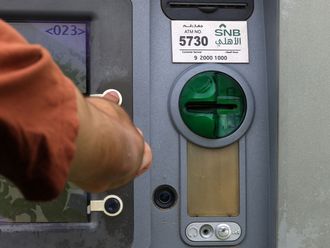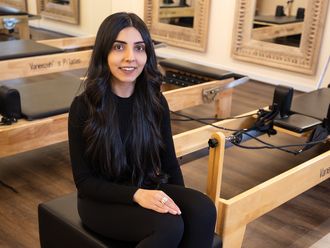
Dubai: The richer the country, the cleaner its banknotes. This is the outcome of a recent study by the University of Wageningen in the Netherlands obtained by Gulf News.
Dutch scientists examined 1,280 banknotes from 10 countries, among them Australia, China, New Zealand, Nigeria, Burkina Faso, the UK and the US.
The banknotes were collected from a range of food outlets, including shops and snack bars, said scientist Rijkelt Beumer. They were then subjected to a thorough examination to identify bacteria.
The researchers found a strong correlation between the number of bacteria per square centimetre on a banknote and a number of indicators of economic wealth in the various countries. The lower a country scores on the "index for economic independence", the more bacteria that were found on its banknotes, Beumer said.
However, the researchers only found low concentrations of pathogenic bacteria on the banknotes, and there was no evidence of alarming high numbers anywhere.
He said that the material used to produce the banknotes is also important. Cotton is used in most banknotes, such as the euro or the dollar. Although this initially makes it difficult for bacteria to take hold, the researchers only found a quarter of the bacteria on banknotes manufactured on a polymer substrate basis (used in countries with a hotter climate, such as Australia) as they did on banknotes made from a cotton-based material.
The scientist recommend that food service should be separated from cash transactions, and preferably carried out by different people. Another option could be to handle food with one gloved hand, and money with the other. This would probably be difficult in certain locations, such as markets. But the risk of becoming ill would be considerably lower if everyone were to wash their hands before eating or preparing food, they said.












